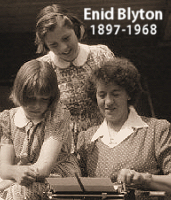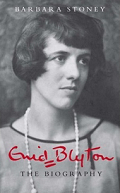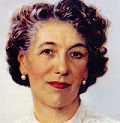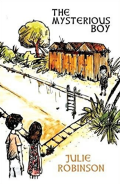Andra's Legacy
by Sally NearyPART 1: Snubby's Proposal – April 1985, Buckinghamshire and London
"Barney, more coffee, darling?" Diana looked across at her husband, buried behind the morning newspaper at the breakfast table. A vague "mmm" was his response, which she took as a "yes", and refilled his cup. She spread a piece of toast with marmalade and looked up again. "Before you head off to London this morning, I wanted to discuss something with you."
Barney remained engrossed, and Diana sighed, impatiently. She really wanted to talk through something this morning, and she knew he could read the newspaper later on the train into London.
"Barney, I am having an affair with the gardener, and I am leaving you to go and live in New Zealand," she said firmly.
Two blue eyes looked up in amazement from behind the newspaper at her smiling face. "What are you trying to do, give me a relapse?" Barney laughed. He put down his paper and said, "ok, you win. You have my undivided attention."
"I had a call from Lucy-Ann last evening while you were out. Snubby has had a wonderful idea," said Diana, looking up at him.
"Oh, really?" laughed Barney in amusement. "How unusual! What is it this time?"
"Well – it seems that one of Snubby's Greek property clients has a beautiful house in the Sporades on the island of Skopelos. It is more of an estate really – the house has about ten bedrooms, substantial grounds and is situated up on the cliffs just outside Skopelos town. He has offered it to Snubby for a two week holiday sometime in September if he wants to take it, and Snubby and Lucy-Ann want us all to go with them."
"When you say all, who exactly do you mean?" asked Barney.
"Obviously us, Roger and Isabelle, the Mannerings and Trents and there would also be room to include Bill and Allie, Barno and mummy as well. They would probably enjoy it."
"I am sure they would," said Barney. "Who would do all the work?"
"It is completely staffed," replied Diana. "There is a resident chef and also transport and a boat available."
"What about our offspring?" asked Barney.
"Well, Lucy-Ann and I discussed that, and we really don't think any of them would want to come. Our two certainly won't – Hugo will be on tour with the orchestra in September and Tess is of course out in Newfoundland on her placement and will still be there. Lucy-Ann said that Peter and Will have other plans and the twins will be leaving school this summer and have already planned to go backpacking round Europe together before hopefully going up to university in October. Jack's elder boys are also now at uni, and Harry is not likely to want to come without the others. There would be room, of course, if he wants to. I would have to check with Roger about Suzanne and Chantal."
"It sounds a great idea, if we can find dates to suit everyone, and that is likely to be the main challenge," said Barney, considering. "Roger's holiday dates are not likely to be very flexible. Phil and Caro may have difficulty coming back to Europe in September, although I suppose they could leave Tess in charge," he laughed. "As for Dinah, I can't imagine she will want to come. Prising her away from her work is likely to be difficult, and I always get the impression she doesn't enjoy these big family gatherings, although I don't know why. Do you remember when we all had a holiday together in France when the children were small? She seemed to be relieved when it was all over. In fact, she appeared to spend more time with the children than with us."
"Dinah hadn't met Jim at that stage and she possibly felt awkward being alone," said Diana. "Lucy-Ann is determined to persuade her to join us though."
"Well, Roger tells me that my first stint back on stage has to be a maximum of five performances a week for about four months, and I will then be due a holiday. I start again with Private Lives in two weeks time, until the end of August. An early September holiday would suit us well," he added. "I will then be looking to do something else from late September. Well, I am up for it, if it can be arranged," he added, smiling across at Diana.
"I knew you'd say yes," Diana smiled happily. "I think it would be a wonderful holiday, and a great opportunity for us all to be together again." She paused and looked at him. "It will be lovely for all the family to get together – after all the last time was in Rubadub last October, and it would be nice to erase the memory."
"I wouldn't want to erase it," said Barney. "It was a wonderful party, and I will always remember it. Let's just try and put the final part behind us," he added quietly.
"And who knows," said Diana, wistfully, "under the Greek sun, Barno and mummy might just get that bit closer." She looked across at him.
"Oh, Di! You are surely still not hoping that our two parents will finally get together after all these years!" Barney looked at his wife in disbelief. "They are both lovely people and very good friends, but there's no chemistry there. You know that!"
"I suppose so," said Diana, "but they're now both in their mid seventies and I just think it would be lovely for them to be there for each other as they get older."
"They will be," said Barney firmly, "but as friends. They share us, they have shared grandchildren, family on both sides, and a wide range of friends and interests. They are both quite financially secure, and I can't see any reason for them to change anything. Dad has had a number of lady friends, as you know, and if he had wanted to move things on, he would have done so by now. If the circumstances are right and the chemistry is right, it just happens." he added.
"As it did with us, you mean," smiled Diana.
"Exactly," agreed Barney.
"It all changed during that New Year holiday when we were all staying with your cousins at Rat-a-Tat House when I was in my final year at uni," remembered Diana.
"It certainly did," smiled Barney. "You're blushing, Mrs Martin!"
"I am not," laughed Diana. "It was during the last few days of the holiday, and the others all wanted to go skating. You and I decided we would go tobogganing instead."
"I adore skating," said Barney, "but I suggested tobogganing because I wanted to be alone with you."
"We were having a terrific time, and suddenly the toboggan hit something and overturned. We were thrown off and we landed in the snow, somehow in each other's arms," laughed Diana.
"We hit a tree-stump," said Barney.
"Suddenly, you were kissing me," Diana added, looking up at him. "I just didn't want it to end."
"Neither did I, sweetheart," agreed Barney, "but I was conscious that if we didn't stop, you would be in danger of getting frost-bite and things were likely to start getting rapidly out of hand out there in broad daylight!"
Diana laughed in delight. That was so like Barney.
"You came down to see me in Bath the weekend after we got back," recalled Diana. "I remember meeting you at the station. You stepped off the train, picked me up and whizzed me round, right there on the platform, in front of everyone. I was so embarrassed!" she added.
"You were not!" laughed Barney. "You were thrilled. You were now my girl, and I wanted the world to know!" He smiled at her.
"We saw each other every weekend after that up until we got engaged after my finals," Diana continued. "You came down to see me in Bath on Sundays when you weren't working, or I came up to London to be with you. 1957 – what an amazing year it was."
"It was very special".
"I remember you said, 'we'll live our dreams, darling – we'll live them all.' We have lived them, haven't we?" Diana looked at him, searchingly.
"Haven't we just," Barney looked across at his wife, catching the note in her voice. He lifted her hand and kissed her palm softly. "And we'll live plenty more," he smiled, his eyes warm. "But as far as Dad and Susan are concerned", he added. "it just won't happen, love. In fact had circumstances been different and she had been free, the woman who would have taken dad's eye is Allie."
"Allie!" cried Diana in surprise. "Do you really think so?"
"I know so," replied Barney, grinning widely. "Allie is just dad's type actually. As well as still being very attractive, she has an artistic quality about her," he said, considering, " and she is something of a free spirit."
"You have obviously noticed," Diana laughed. "Barney, if you plan to get the five to ten train, you need to be on your way."
"I'm off," said Barney, taking a final gulp of coffee and rushing to get his coat and papers. He gave his wife a big kiss and said, "I should be back late afternoon, Di. See you later."
When he had left, Diana gathered up the breakfast things, smiling to herself. Barney was definitely on form this morning, and it was a relief to see him almost back to his old self. The attack in Rubadub the previous October had taken its toll on both of them. Months of inactivity had not suited Barney, who had been used to a very active lifestyle. He had not only felt unwell, but had missed being on stage, his daily horse-riding and all the other activities which he so enjoyed. He had also obviously been more disappointed about having to give up the role of Jean Valjean in Les Miserables than he had admitted. He had in fact become very withdrawn during the winter months, which was most unlike him, and had become very distant from Diana, which she had found very hurtful. The realisation that they had been very close to losing him in Rubadub had really hit her and the children, and they had needed him at a time when he was struggling himself.
Roger, Snubby and Lucy-Ann had rallied round, as always, and Roger had urged his sister to be patient. The trial of Antonio Paulus in January had also been a strain, as Barney had had to give evidence over a period of days. Paulus had been sentenced to 20 years for attempted and re-mediated murder, and they had all been highly relieved when the trial was eventually over.
The turning point had been in February when Barney had taken her to Cyprus for a two week holiday. They had relaxed, read, swum, walked and regained their natural closeness. In March they had spent a long weekend with Bill and Allie at Craggy Tops, and Barney was now ready to get back on stage and also to ride again.
Diana began to fill the dishwasher and resolved to call Lucy-Ann. They had a holiday to plan.
* * *
Dinah Mannering opened the front door of her apartment in Holland Park, West London, and carried in her travel bag. She leant back against the door in relief at being home, kicked off her shoes and threw her handbag on a chair nearby. As much as she loved her work, she found travelling exhausting, and the three day visit to New York had been a whirlwind of activity.
But at last she was home, and her apartment was her haven. She walked across to the French windows leading to the balcony and opened them, looking out across to the gardens beyond. Snubby Lynton had found this apartment for her about a year after her divorce, five years ago, and had urged her to buy it. It was in a prime position in Royal Crescent, on the second floor of a Regency terrace, but had needed some renovation and decoration. She had undertaken the project with enthusiasm, and had created a tasteful elegant space which reflected her style. The walls were covered with an array of 20th century art, and the scheme was decorated in her favourite creams and soft blues.
She walked into the kitchen and opened the fridge. She opened a bottle of her favourite Chablis and poured herself a glass. She wasn't hungry, as she had eaten well on the flight, but just wanted to relax for the remainder of the evening, and look through some papers and catalogues.
Since her teens, Dinah had shared her mother's love of art and had known she had wanted to pursue a career as an art dealer. She had read history of art at university in London and had done her training at Christie's, which had given her an excellent basis. She had also worked for Bonhams, and using her knowledge had taken over her mother's business in her thirties, rebranding it as Mannering Art, and had transformed it into the international business it was today.
Her New York office had now been open for about fifteen months and was going well. It was necessary for her to make fairly frequent visits to develop her clientele and to ensure that her staff were functioning as they should, but so far, so good, she thought. She was aware that her work took up more of her time than it probably should, and her mother and Lucy-Ann in particular had regularly tried to get her to take a break more often. It was hard – she was driven, and she knew what she wanted to achieve and how it had to be done. The art world was hugely competitive, and it was necessary to keep abreast of everything happening – particularly in terms of availability and values. She had a growing portfolio of international clients, and she enjoyed meeting new people and creating new contacts. In fact, it filled a void very well.
At forty-seven, Dinah was tall, shapely and fit and exuded an air of quiet confidence. No hairdresser in London had been able to tame the tuft of hair which she, her mother and brother all shared, and her dark wavy hair was cut in a long layered bob which was shaped around the uncontrollable tuft. Dinah dressed well, having a selection of smart tailored suits in navy and grey for work, and always looked immaculate. Her passion for art was always evident in her business dealings, although she never flirted – her business manner was always totally professional. She was almost oblivious to the fact that the opposite sex found her hugely attractive – they sensed that there was something very private and unfathomable about Dinah which fascinated them. She enjoyed the occasional lunch and dinner with a male friend or colleague, provided they were single and unattached, but that was as far as it went. She simply wasn't interested.
"As long as Barney Martin is on this planet," she thought, "men don't have much chance with me." She sat back on the sofa with her wine and allowed herself to think about Barney, which she rarely did nowadays. That terrible night in Rubadub during his fiftieth birthday weekend came to her thoughts and she recalled the extremes of emotions she had felt that evening – wanting to be there to share his birthday with him, but finding it so difficult. And then, the shooting... and not knowing if he would survive.
She thought about the first time she ever met him, now over twenty-five years ago. Lucy-Ann had been dating Snubby for about three months since their chance meeting in Devon the previous July, and it was clear that the relationship was serious. Dinah had been thrilled for Lucy-Ann and had wondered if she would ever experience the same extreme happiness which she and Snubby so obviously shared. Snubby had been keen for Lucy-Ann's family to meet his own, and she, Philip, Jack, Bill and her mother had been invited to Barney's first night in London playing Prince Hal in the Royal Shakespeare Company's production of Henry IV Part 1. Barney and Diana had been married for about eighteen months at that stage, and they were also to meet Snubby's cousin Roger, Diana and Roger's parents and Barney's family. They all met up prior to the play at a nearby hotel for drinks and introductions, and the plan was to have dinner together afterwards.
She and the others had been pleased to meet the Lynton-Martins and all had gone well. She had liked Diana, and Diana had explained that Barney would obviously join them after the performance.
Barney had been just twenty-five when he played Prince Hal, and it was his most significant role to date. When he walked on stage, Dinah had been stunned. Apart from being strikingly handsome, he had a stage presence which had marked him a star even then. Knowing him now as she did, she realised that Prince Hal had been the perfect part for him, and he had played it with incredible depth and energy. She had been barely able to take her eyes off him and had felt completely overwhelmed by her feelings. The Director had used Barney's acrobatic talents to the full, and the tavern scene with Falstaff had been a tour de force; Barney had carried out a brilliantly choreographed and perfectly executed series of acrobatic manoevres across the tables of the tavern set, a sequence of movement, light and music which had enthralled the audience, and which had culminated in a series of cartwheels around the stage. Barney had received excellent reviews, and it had undoubtedly been a turning point in his career.
At the restaurant afterwards, Barney and Diana had arrived together, wrapped up in each other's arms, and they had been introduced. Dinah had looked into those amazingly blue eyes and had seen there all the things he was – honest, straightforward, strong and kind, without a trace of arrogance, and also the terrific sense of humour – how she had loved that wonderful uproarious laugh which had filled the room and made everyone else want to laugh with him.
After that, there had been family weddings, christenings, Christmas parties, Bank Holiday weekends and all kinds of gatherings which she had found so difficult. A two-week holiday in France with the whole family had been particularly hard, and she had vowed she would never agree to that again. The more she knew him, the more she loved him, and yet from the very beginning Dinah had known with complete clarity that Barney could never, and would never, be hers. The knowledge had filled her with a sense of misery and panic, and she had wondered how she could avoid seeing him altogether. She was not malicious by nature, and knew she didn't have the right to feel resentment against Diana; nevertheless, she had kept her distance from her over the years, which she knew neither Diana nor Lucy-Ann had understood. She would have felt humiliated and ashamed if anyone in the family had understood her feelings, but she was convinced that she had succeeded in keeping them hidden.
She had met Jim when she had been in her late twenties. He was a good friend, kind and undemanding and she had felt comfortable and safe with him. When she married him, she knew her family were surprised, and her brother Philip had asked her more than once if she was quite sure about what she was doing. She had been defiant, and yet she had regretted it within a few years as the marriage was clearly not working. It had been totally unfair on Jim, who could not be any more than he was, and she had consequently focused all her energy into her career to try and fill the emptiness in her heart. The harder she worked, the more the marriage foundered, and they had ultimately agreed to part.
Since her divorce, her business had flourished, and any spare time was generally spent with a small group of close friends, and her immediate family. When she needed it, Craggy Tops was a bolt-hole, and she genuinely loved spending time with Bill and her mother. She always felt restored when she left. Occasionally, Jack and Sue and their family joined them during her visits to Cornwall, and it was always good to see them. She saw very little of her brother Philip, as he was invariably overseas, but she thought of him often, not expecting that he gave much thought to her in return. He never had done. His various animal friends, which she had so disliked as a child, had always been his main preoccupation, and the only time she had seemed to gain his attention was when she was annoying him.
Dinah poured herself another glass of wine, and settled down to look at details of forthcoming exhibitions and catalogues which she needed to study. She had a new client who had a particular interest in 18th century European art and she needed to concentrate on this that particular evening. Finding a special piece was always the challenge, and she always spent time on her research.
She browsed the catalogues for Christie's, Sotheby's and Denham's at their various galleries in Europe and New York. Denham's in New York would be holding a key auction in mid June, which specialised in European sculpture and works of art. She perused the list in some detail, and suddenly a line jumped out at her. She read it, and then read it again. Items from the Andra Treasure Ships of Greece – 18th century drinking cup, bowl and vase – located in Thamis, Greece. Private Collection.
Dinah re-read the wording once more, wondering if there had been some mistake. The Andra treasure! Surely, these could not be items from the same Andra treasure which she, Philip, Jack and Lucy-Ann had found with Bill, over thirty years ago. She sat back and recalled the events from their Mediterranean cruise. They had met a boy on the ship called Lucian, who was half Greek and something of a wimp, Dinah remembered, and who was travelling with his uncle and aunt who were his guardians. His uncle, Paul Eppy, was an archaeologist who bought and sold islands for potential gain, and proved to be a crook. Lucian had told them of the ancient Greek tale of the Andra treasure-ships which had apparently been a true story and had occurred hundreds of years before. Dinah had an excellent memory, and recalled the story. King Panlostes had had a kingdom among the Aegean islands. His son had had an accident when he was small and had lost one eye and hurt his foot so that he limped. He wanted to marry the daughter of a king on the mainland of Greece, a girl called Andra.
Andra had loved someone else, but Andra's father had decided that the girl should marry the one-eyed prince, if King Panlostes would send him gold, arms and treasure worth half his kingdom. The King sent a fleet of ships, packed with riches of all kinds, and set sail from the island to the mainland of Greece.
Andra had had other plans, however, Dinah recalled. She sent word to the man she loved about the ships, and he arranged for the ships to be intercepted by his own fleet, but he found no treasure. The captain of the fleet had never meant to deliver the treasure safely and had decided to take it to an island to keep safe for himself. He had planned to tell both Kings that he had been attacked and robbed on the way to the mainland. The captain and most of the men were killed, and a search was made for the treasure but it was never found.
One or two of the men involved in the hiding of the treasure had made a rough map, and this was found by a Greek merchantman who identified only five islands where the treasure could possibly be located. Sadly, he died before the treasure was found, and it remained hidden for hundreds of years.
"And that," thought Dinah, "was until Lucy-Ann bought the ship in a bottle called Andra for Philip's birthday, and we discovered that the ship inside it housed an old parchment, a treasure map!" The map proved to be the long-lost treasure map of the island of Thamis which had been hidden by the old Greek merchantman, and which showed where the Andra treasure was located. They, with Bill, had found the treasure on Thamis, although Eppy had been hot on their trail.
Dinah sipped her wine, recalling all the events of that holiday in Greece. The treasure had been identified as the authentic Andra treasure, and Bill had told them that it would always belong to the Greek nation. As far as she was aware, the treasure was still on display in the National Art Gallery in Athens.
If that was the case, she thought, why are items from that treasure haul now for sale in Denham's gallery in New York? How could they be part of a private collection?
It was a mystery, thought Dinah, and one she was determined to solve.
To be continued...





 Enid Blyton
Enid Blyton The Official
The Official The
The Keith Robinson
Keith Robinson